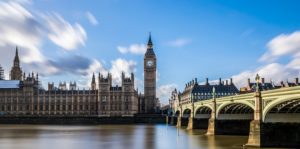
Why There Was No Brexit on 31 October 2019 and What Happens Next?
Today, on 31 October 2019, the UK was supposed to leave the EU ‘do or die’, according to Boris Johnson. It did not happen. He has agreed a deal with the EU but the bill implementing it has been put on hold. Why did this happen?
The European Union (Withdrawal Agreement) Bill
This bill is called the European Union (Withdrawal Agreement) Bill. It consists of five parts and six schedules.
This bill has a very important purpose. It’ll implement in domestic law the Withdrawal Agreement agreed between the UK and the EU. The UK government has also confirmed that the purpose of the Bill is to:
- Protect the rights of EU citizens and EEA EFTA and Swiss nationals, living and working in the UK;
- Create a time-limited implementation period which gives businesses and people time to plan for one set of changes;
- Provide continuity and certainty at the end of the implementation period by setting out what will happen to ongoing EU law processes at the end of this period
- Provide for the Protocol on Ireland/Northern Ireland in domestic legislation
- Create a means for paying the financial settlement agreed with the EU in the Withdrawal Agreement.
In simple terms, these are ‘after divorce’ arrangements between the UK and EU.
Three ‘Withdrawal’ Documents
There are three ‘withdrawal documents’:
- European Union (Withdrawal) Act 2018 (the Act)
- The Withdrawal Agreement (the Agreement)
- European Union (Withdrawal Agreement) Bill 2019–20 (the Bill)
What is the difference between these three seemingly similar documents?
The Act’s main purpose is to ‘cancel’ the EU law in the UK … and remove the competence of EU institutions to

legislate for the UK. Also, according to this Act, Parliament needs to approve any withdrawal agreement negotiated between the UK Government and the European Union. The Act became law by Royal Assent on 26 June 2018.
The Agreement sets out ‘the terms of the divorce’ between the UK and EU. It covers as money, citizens’ rights, border arrangements and dispute resolution matters. It also contains a transition period and an outline of the future relationship between the UK and the EU. The Agreement came out on 14 November 2018.
The Bill’s purpose was to implement the Agreement into domestic law. The UK government introduced it in the House of Commons on 21 October 2019.
So, Why There Was No Brexit Today?
This is because according to the Act, the UK Parliament needs to approve (ratify) any withdrawal agreement negotiated between the UK Government and the European Union. It did not happen. The EU agreed to accept the Withdrawal agreement, but Parliament did not! The same thing happened with Teresa May with only one difference. Boris Johnson negotiated changes to the withdrawal agreement where he replaced the backstop with a new Northern Ireland proposal.
What’s Next?

On 30 October 2019 UK Parliament passed the Bill for an early election. Then later, on 6 November 2019, the UK Parliament is going to be dissolved.
On 12 December 2019, there will be general elections and Brexit will depend on the outcome of the election.
There Maybe Four Possible Outcomes:
-
UK Parliament may agree to what was agreed between Boris Johnson and the EU and ratify the Withdrawal Agreement.
-
There may be another referendum, similar to the one, which happened in 2016. In this case people will need to express their opinion again.
-
Alternatively, there may be a ‘No-deal Brexit’. This may happen if Parliament refused to ratify the Withdrawal Agreement and leave without it. In this case, the UK will leave the EU without the Agreement on 31 January 2020. It may be damaging for the UK economy as in ‘no deal’ case scenario, the UK will immediately exit the customs union and single market – arrangements designed to make trade easier.
-
Believe it or not, Brexit can also be ‘cancelled’ altogether by revoking Article 50. This does not seem to be an option for now.
What Does This Mean for EU Citizens and Their Family Members?
It means that there will be no changes to their status until the UK decides what to do next. This will be until at least 12 December 2019 – the general election day.
Further Help
And finally, if you are thinking of submitting a visa application, you will significantly increase your chances for success by understanding the rules and the process of your visa application. I, therefore, created a number of online courses to help you do exactly that. Knowledge will give you confidence and may help avoid refusal. For more information about the courses CLICK HERE.
